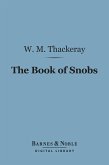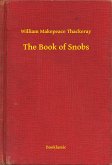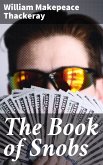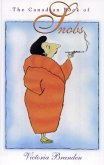William Makepeace Thackeray's "The Book of Snobs" is a keen social satire that deftly dissects the myriad strata of Victorian society, exposing the pretensions and absurdities of the upper class. In a series of essays, Thackeray employs a witty, sardonic tone and a mix of humor and incisive observation that distinguishes his literary style. By framing his critique within the context of the rapidly evolving social landscape of 19th-century England, he illuminates the delusions of grandeur that plague those he defines as 'snobs,' encompassing not only the wealthy but also those who aspire to rise above their station, thereby bridging class divides through laughter and ridicule. Thackeray's own life experiences as a member of the upper-middle class, coupled with an education that took him through various European cities, deeply influenced his perspectives on class and identity. His experiences in journalism and as a novelist enriched his understanding of societal hierarchies, enabling him to articulate the folly and vanity of social climbers with both compassion and biting critique. "The Book of Snobs" originated from his desire to confront the snobbery prevalent in society and reflect on the human condition, anchoring it in both clarity and humor. This book is a must-read for anyone intrigued by the complexities of social behaviors and the nuances of class dynamics. Thackeray's sharp wit, coupled with his empathetic understanding of frailty, not only entertains but prompts deeper reflection on the nature of vanity and pride. "The Book of Snobs" remains a timeless exploration of human folly, making it essential reading for scholars, social historians, and casual readers alike.
Dieser Download kann aus rechtlichen Gründen nur mit Rechnungsadresse in A, B, BG, CY, CZ, D, DK, EW, E, FIN, F, GR, H, IRL, I, LT, L, LR, M, NL, PL, P, R, S, SLO, SK ausgeliefert werden.









